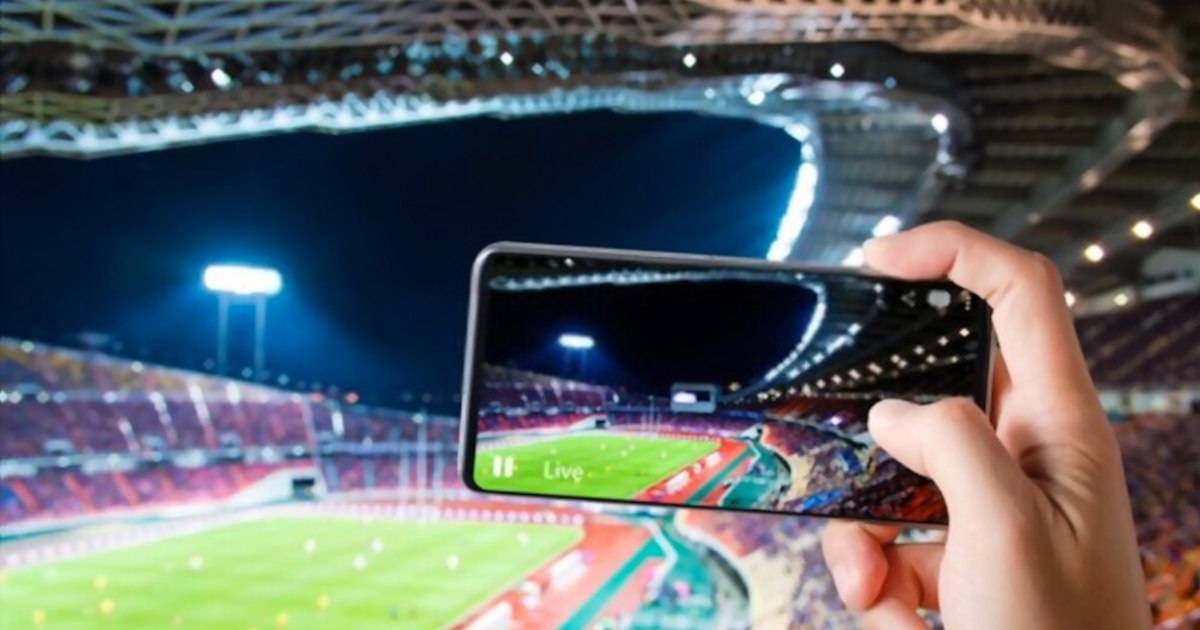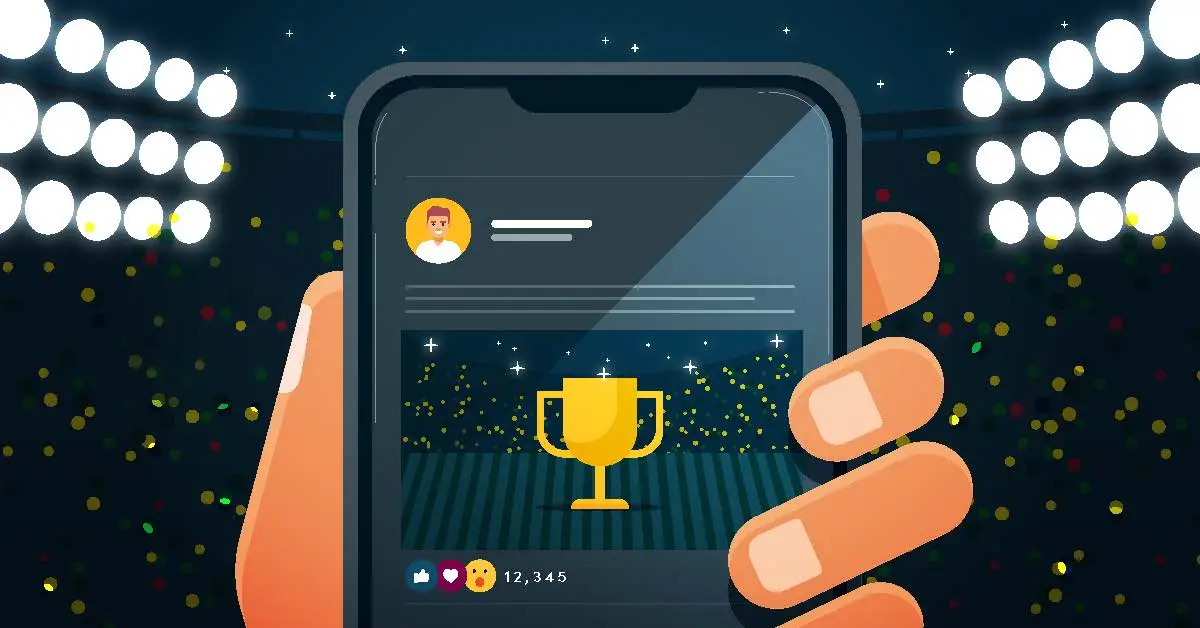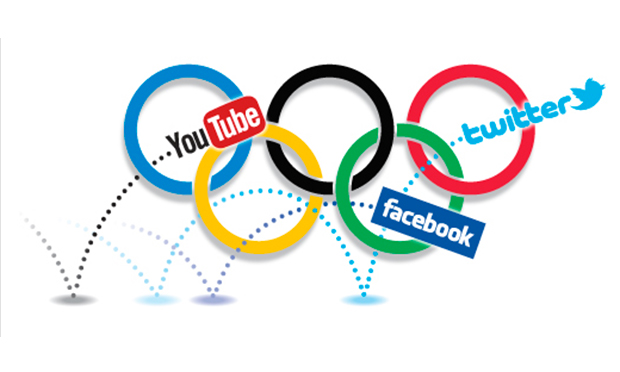Introduction: The role of social media in modern society
In today’s digital age, social media has woven itself into the fabric of our everyday lives. It shapes how we communicate, share experiences, and consume information. But its influence stretches far beyond personal interactions; it has dramatically transformed the world of sports as well. Fans no longer passively watch games from their living rooms—they engage with teams and athletes in real-time through various platforms like Twitter, Instagram, and TikTok. This shift is not just a trend; it’s a revolution that redefines what it means to be a fan in an era where every moment can go viral at the click of a button.
As we explore “The Impact of Social Media on Sport,” we’ll delve into how these platforms have changed fan engagement, marketing strategies, and even the mental health landscape for athletes. Buckle up—it’s time to dive deep into this digital phenomenon that is reshaping our beloved games.
Social Media and Fan Engagement in Sports
Social media has revolutionized how fans connect with their favorite sports. Gone are the days when following a game meant relying solely on radio broadcasts or newspapers. Today, platforms like Twitter and Instagram provide real-time updates that keep fans in the loop during every thrilling moment.
Highlights from games can be shared instantly, allowing fans to relive key plays within minutes of their occurrence. This immediacy builds excitement and keeps discussions buzzing online.
Fans also crave intimacy with teams. Behind-the-scenes content gives them a peek into athletes’ lives, creating a sense of connection beyond just statistics and scores. Exclusive interviews, training sessions, and candid moments humanize players in ways traditional media cannot match.
Moreover, social media facilitates direct interaction between fans and their idols. Athletes engage with followers through Q&A sessions or live streams—transforming casual viewers into active participants in the sporting experience.
A. Real-time updates and highlights
Social media has revolutionized how fans consume sports. The days of waiting for highlights on television are long gone. Now, everything happens in real time.
With just a few clicks, fans can follow live updates on platforms like Twitter and Instagram. They experience the thrill as it unfolds—goals scored, fouls committed, and game-winning moments captured instantly.

These quick snippets keep fans engaged throughout the event. Highlights become shareable content that spreads like wildfire across feeds. A single memorable play can go viral within minutes.
This immediacy enhances the connection between teams and their supporters. It allows fans to feel closer to the action than ever before while fostering conversations around their favorite athletes and games in ways traditional media simply cannot replicate.
B. Behind-the-scenes content
Behind-the-scenes content has revolutionized how fans connect with their favorite sports teams and athletes. This exclusive look into the daily lives of players adds a personal touch, fostering deeper connections.
Fans crave authenticity. They want to see what happens beyond the game day glamour—intense training sessions, team meetings, or even light-hearted moments in the locker room. Sharing these glimpses humanizes athletes, making them relatable figures rather than distant stars.
Social media platforms allow for spontaneous sharing of this intimate content. Whether it’s a quick Instagram story or a TikTok video, these snippets create buzz and excitement among followers. It builds anticipation for upcoming games while nurturing loyalty among fans.
The access provided by behind-the-scenes content transforms casual viewers into dedicated supporters who feel part of the journey. This connection is vital in today’s digital landscape where engagement drives success for teams and brands alike.
C. Interaction with athletes and teams
Social media has revolutionized the way fans interact with athletes and teams. Gone are the days when these interactions were limited to autographs or distant cheers from the stands. Now, a simple tweet can spark a conversation between an athlete and their followers.
Athletes often share personal stories, training routines, and even thoughts on game strategies. This transparency fosters a sense of connection that was previously unimaginable. Fans feel like they know their favorite players on a more intimate level.
Teams also utilize platforms to engage directly with supporters. Polls, Q&A sessions, and live chats create opportunities for dialogue that enhance community spirit.
This two-way communication not only strengthens loyalty but also humanizes athletes in the eyes of fans. The barriers have broken down; now it’s about building relationships rather than just viewing from afar.
How Social Media has Transformed Marketing in Sports
Social media has revolutionized marketing strategies in the sports industry. It allows teams and organizations to connect with fans like never before. Instant communication creates a dynamic relationship between brands and their audience.
Sponsorship deals have evolved, too. Brands now seek partnerships that leverage social media influence directly. Engaging content shared by athletes can amplify promotions, reaching wider audiences effortlessly.
Athletes are also taking charge of their personal brands. They curate their online presence to reflect who they are beyond the field or court. This shift empowers players to attract endorsements based on their unique stories.
Targeted advertising is another game-changer. Social platforms analyze user behavior, allowing marketers to tailor ads specifically for sports fans. This precision leads to higher engagement rates and more effective campaigns than traditional methods could achieve.
A. Sponsorship deals
Sponsorship deals have evolved significantly with the rise of social media. Brands are now seeking to engage directly with sports fans through platforms like Instagram, Twitter, and TikTok.
These digital channels provide a unique opportunity for sponsors to amplify their reach. Athletes can showcase partnerships in real time, creating authentic connections with their followers.
Moreover, innovative content strategies allow brands to tell compelling stories. This shift has transformed traditional advertisements into relatable moments that resonate more deeply.
Additionally, sponsorships now extend beyond team jerseys or commercials. Engaging campaigns can unfold online, inviting fans into the conversation and making them feel part of the experience.
As athletes leverage their influence on social media, they become valuable assets for brands looking to tap into niche markets. The future of sponsorship in sports is undoubtedly intertwined with this ongoing digital revolution.
B. Personal branding for athletes
Personal branding has become essential for athletes in today’s digital landscape. With social media platforms at their fingertips, athletes can craft and share their unique narratives. This visibility enables them to connect with fans on a personal level.
By showcasing their personalities and interests beyond the sport, they foster deeper relationships with followers. Engaging content—like training routines, hobbies, or advocacy work—helps humanize these public figures.
Athletes also have the opportunity to align themselves with brands that resonate with their values. Authentic partnerships not only boost credibility but also enhance income potential through sponsorship deals.
Social media allows athletes to control how they are perceived. They can respond directly to criticism or showcase achievements without relying solely on traditional media outlets. This empowerment transforms them from mere players into influential figures within and outside their sports arenas.
C. Targeted advertising
Targeted advertising has become a game-changer in the sports industry. With vast amounts of data available, brands can now reach specific audiences with laser precision. This means that ads are more relevant to fans’ interests, increasing engagement and conversion rates.
For example, social media platforms analyze user behavior and demographics. They tailor advertisements based on these insights. A basketball fan might see different promotions than a soccer enthusiast, ensuring messages resonate deeply.
Moreover, athletes themselves have started leveraging this power. By collaborating with brands on personalized campaigns, they not only elevate their personal brand but also boost sponsors’ visibility among niche audiences.
This shift allows for creative storytelling that speaks directly to consumers’ passions. The synergy between sports content and targeted advertising creates an immersive experience that captures attention like never before.

The Negative Effects of Social Media on Athletes
Social media can be a double-edged sword for athletes. While it provides a platform for connection, it also opens the door to constant scrutiny. Athletes often face criticism from fans and pundits alike, leading to increased stress and anxiety.
The pressure to maintain an ideal image online can be overwhelming. Many feel compelled to showcase their best moments while hiding any flaws or struggles. This creates unrealistic standards that are hard to meet.
Trolling is another significant issue. Negative comments can impact mental health, causing distress and self-doubt among players. The relentless nature of social media makes it difficult for athletes to escape this environment.
Moreover, distractions abound on these platforms. Time spent scrolling through feeds could take away from training or rest periods essential for peak performance. Balancing engagement with personal well-being remains a continuous challenge in the digital age.
Frequently Asked Questions
The rise of social media has undeniably reshaped the landscape of sports. Fans are more connected than ever, athletes have unprecedented platforms for personal branding, and marketing strategies have evolved dramatically. However, with these advancements come challenges that both fans and athletes must navigate.
What role does social media play in engaging sports fans?
Social media allows teams to provide real-time updates, highlights from games, and immediate access to scores. It creates a sense of community where supporters can share their passion and excitement about their favorite teams.
How do athletes use social media for personal branding?
Athletes leverage platforms like Instagram and Twitter to showcase their personalities beyond the game. They build relationships with fans while promoting themselves as brands.
Are there any negative effects associated with social media on athletes?
Yes, while it offers opportunities for connection, it also subjects athletes to scrutiny. Negative comments or trolling can affect mental health significantly.
Can you give examples of successful sponsorship deals through social media?
Brands often partner with popular influencers or athlete endorsements on platforms like TikTok or Instagram to reach targeted demographics effectively.
Is targeted advertising effective in sports marketing?
Absolutely! Social media algorithms allow marketers to tailor ads based on user preferences—ensuring they reach the right audience at the right time.
As we continue advancing in this digital age, it’s clear that social media’s impact on sport is profound—and its evolution will undoubtedly present new dynamics for years to come.


